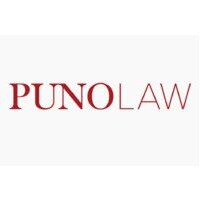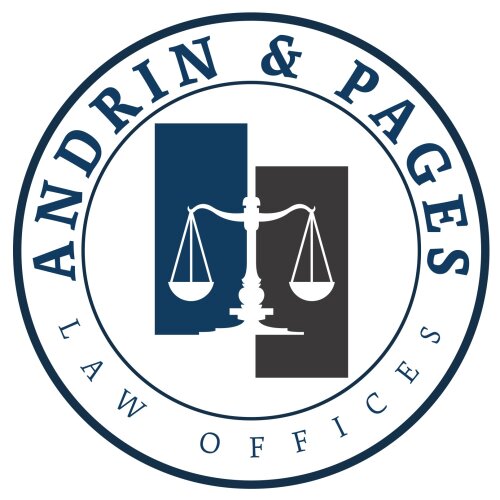Best Land Use & Zoning Lawyers in Philippines
Share your needs with us, get contacted by law firms.
Free. Takes 2 min.
Free Guide to Hiring a Real Estate Lawyer
Or refine your search by selecting a city:
List of the best lawyers in Philippines
Philippines Land Use & Zoning Legal Questions answered by Lawyers
Browse our 1 legal question about Land Use & Zoning in Philippines and read the lawyer answers, or ask your own questions for free.
- Property right of way quesiton
- The land my wife and I purchased and built a house was originally platted based on a provincial road. The provincial road was straightened and our property is no longer directly on the new road. Do we have a legal claim to an access right of way along the original... Read more →
-
Lawyer answer by Kanasra & Mangi Law Associates
If the provincial road was straightened and your property now lacks direct access, you might have a legal claim for a right of way along the original lines if it is the most practical route to access your property. When...
Read full answer
About Land Use & Zoning Law in the Philippines
Land Use & Zoning laws in the Philippines are designed to regulate the allocation, utilization, and development of land resources to ensure sustainable development and prevent land use conflicts. The basic framework is guided by the Local Government Code of 1991 and the Urban Development and Housing Act of 1992, among other legislations. These laws define specific zones within each locality, detailing the permissible activities and developments in residential, commercial, industrial, and agricultural areas. The Comprehensive Land Use Plan (CLUP) is a key document that outlines land use policy in each municipality or city. Adhering to these zoning laws is crucial for maintaining order and balance in land development activities.
Why You May Need a Lawyer
Legal issues in land use and zoning can arise in several contexts, necessitating the expertise of a lawyer. You may need legal assistance when purchasing property to ensure it is zoned for your intended use. A lawyer can also help when applying for variances or permits to develop or modify land in ways that deviate from existing zoning laws. Disputes with neighbors or local authorities regarding land use or property boundaries can also require legal representation. Furthermore, if your proposed development is opposed by local residents or the government, a legal professional can guide you through the negotiation or litigation process.
Local Laws Overview
In the Philippines, local zoning ordinances are implemented by city and municipal governments through their comprehensive land use plans. Key aspects include:
- Zoning Ordinances: Local governments establish zoning ordinances to categorize districts and identify permitted uses for land within those zones.
- Building Permits: Necessary for construction or significant alterations to existing structures, ensuring compliance with zoning regulations and building codes.
- Variances and Special Permits: Grants exceptions to zoning ordinances under specific conditions, often involving a public hearing or review by zoning authorities.
- Environmental Compliance: Developments may require environmental compliance certificates especially in environmentally critical areas as mandated by law.
- Easements: Legal rights to use a portion of land for utilities or access which can affect land development plans.
Frequently Asked Questions
What is the purpose of zoning ordinances?
Zoning ordinances are designed to manage land use and development, reduce conflicts between different land uses, and ensure community welfare by separating residential, commercial, and industrial areas, among other uses.
How can I determine the zoning classification of a property?
You can determine the zoning classification by contacting the local zoning office or consulting the Comprehensive Land Use Plan available from the local government unit where the property is located.
Can I challenge a zoning decision made by the local government?
Yes, you can challenge a zoning decision, typically by filing an appeal with the local board of zoning appeals. If necessary, further legal action can be taken in court.
What is a variance in zoning laws?
A variance is a legal exception to the zoning ordinance. Property owners can apply for a variance if they believe the ordinance imposes undue hardship or if special conditions warrant a departure from standard regulations.
What is the role of the Housing and Land Use Regulatory Board (HLURB)?
The HLURB is a government agency that evaluates and approves land use and development plans, ensuring they conform to national standards and policies.
Are there penalties for violating zoning laws?
Yes, penalties can include fines, the dismantling of non-compliant structures, or legal action requiring adherence to zoning laws.
How can environmental laws affect land use and zoning?
Environmental laws may restrict certain developments in ecologically sensitive areas and require environmental impact assessments to ensure projects meet environmental standards.
What is an easement, and how does it affect property development?
An easement is a legal right to use another's land for a specific purpose, such as utility lines or access roads. Easements can restrict development by limiting how a property can be used or altered.
Can a nonconforming use be legal?
In some cases, nonconforming uses that existed before new zoning laws were enacted may be "grandfathered" and allowed to continue, although expansion or modification may be restricted.
Is public participation required in zoning decisions?
Public participation is often required, especially when significant zoning changes or variances are being considered. Public hearings are typically held to gather input from community members.
Additional Resources
For those seeking further information or assistance on land use and zoning in the Philippines, the following resources may be helpful:
- Local government units (LGUs) for specific zoning ordinances and CLUPs.
- The Housing and Land Use Regulatory Board (HLURB) for policies and land use regulations.
- Philippine Association of Realty Appraisers (PARA) for professional assistance in property appraisal matters.
- The Integrated Bar of the Philippines for legal advice and lawyer referrals.
- The Department of Environment and Natural Resources (DENR) for environmental compliance information.
Next Steps
If you need legal assistance in land use and zoning issues, consider the following steps:
- Identify the Issue: Clearly define your zoning or land use concern, such as disputes, compliance, or permit issues.
- Consult Professionals: Seek advice from a lawyer specializing in land use and zoning or contact local government zoning offices for initial guidance.
- Prepare Documentation: Gather relevant documents, maps, or correspondences that may support your case or inquiries.
- Explore Legal Options: With your lawyer, review your options, including negotiation, applying for variances, or pursuing legal action.
- Take Informed Action: Proceed based on professional legal advice, ensuring compliance with local laws and regulations.
Lawzana helps you find the best lawyers and law firms in Philippines through a curated and pre-screened list of qualified legal professionals. Our platform offers rankings and detailed profiles of attorneys and law firms, allowing you to compare based on practice areas, including Land Use & Zoning, experience, and client feedback.
Each profile includes a description of the firm's areas of practice, client reviews, team members and partners, year of establishment, spoken languages, office locations, contact information, social media presence, and any published articles or resources. Most firms on our platform speak English and are experienced in both local and international legal matters.
Get a quote from top-rated law firms in Philippines — quickly, securely, and without unnecessary hassle.
Disclaimer:
The information provided on this page is for general informational purposes only and does not constitute legal advice. While we strive to ensure the accuracy and relevance of the content, legal information may change over time, and interpretations of the law can vary. You should always consult with a qualified legal professional for advice specific to your situation.
We disclaim all liability for actions taken or not taken based on the content of this page. If you believe any information is incorrect or outdated, please contact us, and we will review and update it where appropriate.
Browse land use & zoning law firms by city in Philippines
Refine your search by selecting a city.
















